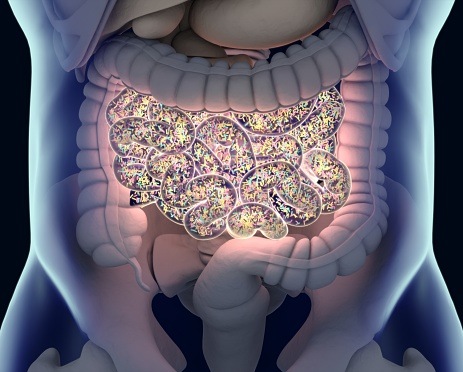
While the recommended treatment for patients with gastrointestinal stromal tumors (GISTs) is adjuvant imatinib, little is known about optimal duration, with some patients reporting no benefit from the therapy.
Recent research from Samuel Singer, MD, and colleagues published in The Lancet Oncology sought to determine the potential of interpretable artificial intelligence (AI) methods to identify which patients should undergo treatment with imatinib, optimal therapy duration, and potential benefits.
Researchers evaluated the data of patients who underwent treatment for resection of primary, nonmetastatic GISTs between October 1982 and December 2017 and received an intermediate- or high-risk classification according to the Armed Forces Institute of Pathology Miettinen criteria.
The counterfactual random forest model used predictors of recurrence and duration of imatinib to determine the potential of recurrence at 7 years for a patient at each duration of treatment. Investigators then used optimal policy trees (OPTs) to evaluate the counterfactual random forest model by training a decision tree with the counterfactual predictions.
Of the 1007 participants, the OPT did not recommend imatinib for patients with GISTs of gastric origin smaller than 15.9 cm with a mitotic count of less than 11.5 mitoses per 5 mm2 or for those with small GISTs of any site with a count of less than 11.5 mitoses per 5 mm2. Upon OPT cutoff, the sensitivity levels were 92.7%, and the specificity levels were 33.9%.
Dr. Singer and colleagues noted that 38 (29%) of the 131 patients in cohort A and 44 (35%) of the 126 patients in cohort B would have been spared unnecessary treatment.
“If the identified patient subgroups were applied in clinical practice, as many as a third of the current cohort of candidates who do not benefit from adjuvant imatinib would be encouraged not to receive imatinib, subsequently avoiding unnecessary toxicity on patients and financial strain on health care systems,” the researchers wrote. “Our finding that 5 years is the optimal duration of imatinib treatment could be the best source of evidence to inform clinical practice until 2028, when a randomized, controlled trial with the same aims is expected to report its findings.”






 © 2025 Mashup Media, LLC, a Formedics Property. All Rights Reserved.
© 2025 Mashup Media, LLC, a Formedics Property. All Rights Reserved.